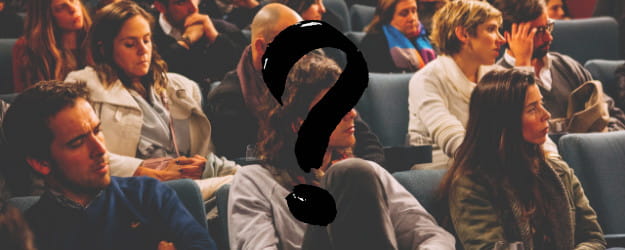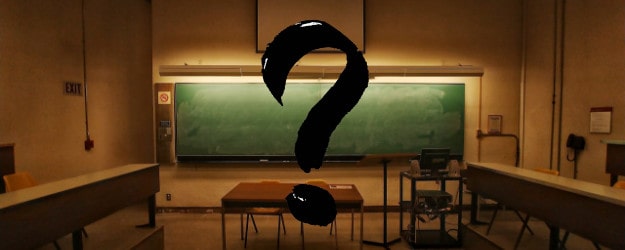The latest negotiations between opposition parties to block a ‘no deal’ EU exit highlight what a key role more creative thinking and innovation could play and should be playing in the fiasco still unravelling three years on. If only creativity can get taught, be encouraged and be nurtured more in our colleges and schools.
Ironically, we have seen a lot of creative propaganda manipulation in Brexit campaigns - it has focused on forcing division rather than creating unity.
A colleague who teaches cultural theory across the arts gave me a glaring example of stymied creativity - the so out-of-date layout of the House of Commons. She pointed to the battle lines of two banks of seats facing each other, government versus the opposition. Very little wriggle room for compromise. Political duelling. All or nothing politics.
Yet if you go to almost any other democratically designed parliament building in the world, you’ll find seats in a non-confrontational semi-circle or similar format. Definitely not adherents of our home-grown, ‘in your face’ them vs us philosophy. Different parties, yes, but coalition politics in many cases, collaboration, a meeting of fine minds and the emergence of creativity and compromise as a result.
Assess our democracy and innovate to change it
Our current first-past-the-post elections work against the more consensus politics common in countries that use a proportional representation voting system. It’s up to us all to assess how our democracy works and then use innovation to change it.
Sadly, creativity has fallen a victim to the cuts to arts subjects and arts centres since 2010. There’s also been a steady change in focus from schools, colleges and universities towards STEM subjects (science, technology, engineering, maths), accompanied by a much sharper emphasis on careers, employability and getting a job. All these factors narrow the possibilities and understanding of what creativity is, how it can be taught and how it can actually help, not hinder, in careers.
Creative industries are one of the largest employers in the UK, including computer games - massive in the UK, film and TV, media technology, web design, theatre. We lead globally in many of these areas but we constantly need new voices coming through to continue to creatively change these industries.
‘Innovation’ is a constant in job descriptions
Where don’t we see the word ‘innovation’ in white papers and job descriptions? The future scares me a bit – too many young people being steered away from creative subjects will end up with UK plc shooting itself in the foot. We require bright minds and creative people to save us with their ideas in these times of climate breakdown and political and social upheaval.
So how can the FE sector counter the narrow view of many who don’t engage in the arts themselves and see them simply as a commodity - like a painting or a service that can be bought? For creativity is more than that - it’s a way of thinking, of working. Colleagues teaching creative arts aim to shift students’ perspectives so that they see creativity and innovation as a key means of solving problems in every walk of life from making businesses stronger to experimenting along different lines in the scientific process.
Rather than focus on STEM, let’s stick arts in the middle and rename it STEAM! If scientists are to address environmental problems they need creativity; they also have to work with people in technology and be creative in how they do that.
People get miserable when they can’t be creative
My colleague told me she has often found people miserable who were in their 30s and been in a job for years. Dig down and they’ll admit they have not tapped into that inherent creative part of themselves and deeply regret it. She argues strongly that creativity is a “life-changing, transferrable skill and should be in everything”.
Think of polymaths as great examples, she told me - literally people of wide knowledge or learning such as Leonardo da Vinci or Michelangelo who were architects, painters, sculptors and everything else rolled into one - the epitome of creative thinking.
‘Creativity teams’ for every college
So it is up to colleges to embed creative thinking in all subjects, harnessing a ‘creativity team’ to apply knowledge in different ways. I’ve been reading about the difference in how a subject might be taught in different institutions. At Eton pubic school, a history teacher had encouraged pupils to learn by imagining themselves as Napoleon or Churchill and asking what they would do in a given situation. Compare that with a traditional and ‘safe’ approach of many schools and colleges where students are asked to simply read up other people’s interpretations and analysis. I know which approach would grab my interest. . .
Colleges need to do more to push away from ‘front of class’ teaching, rote learning and the test culture, and introduce problem-solving projects as the best way to share knowledge and skills with others; at the moment this is only happening in pockets.
One way is to break the apparent grip on arts by old boy/girl networks. It’s amazing how many well-off students from families well-connected in the creative arts industries I see studying creative subjects like fine arts, computer games, film, TV etc. and then landing the work placements to match. Having the right contacts seems de rigueur.
Burgeoning movement for more creative thinking
But there are growing unsung initiatives fighting the corner of those without the advantage of privileged access to live experience. The charity, Arts Emergency, works against a prevailing culture of privilege to support “marginalised young people overcome barriers to participation and success in higher education and the creative and cultural industries”. It attracts volunteers from the creative industries to support talented students earmarked by schools who would otherwise not get the opportunities for work experience and networking.
You can be matched up with a local student as a mentor or you may be able to help in other ways such as linking students with local businesses in the creative arts, such as gallery owners and software gaming companies, or visiting an individual artist’s or photographer’s studio for work placements and advice/Q&A sessions.
Another is the Access Project, a charity not specifically arts-related that supports bright students from disadvantaged backgrounds, providing in-school/college support and personalised tuition to help them gain access to top universities.
Creative riddlers whispering in our ears
I’m reminded of Shakespeare’s King Lear and his court jester - a creative riddler whispering in his ear and talking creative nonsense. But it’s what all leaders need. If you don’t have creative thinkers around you, you can become stuck for ideas.
We need larger arts-funded projects that enable people to set up testing grounds for ideas. We need to get away from the short-termist mindset that removes funding if a project cannot survive financially.
During wartime, so the story goes, people questioned Winston Churchill as to why he kept funding the arts when the money could be put towards so many other more urgent uses. He replied: “What are we actually fighting for?”
Ideally, we need an arts centre on every street corner. That would be something!






